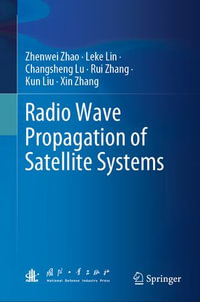
eTEXT
Modulated Temperature Differential Scanning Calorimetry
Theoretical and Practical Applications in Polymer Characterisation
By: Mike Reading, Douglas J. Hourston
eText | 12 October 2006 | Edition Number 1
At a Glance
eText
$369.01
or
Instant online reading in your Booktopia eTextbook Library *
Read online on
Desktop
Tablet
Mobile
Not downloadable to your eReader or an app
Why choose an eTextbook?
Instant Access *
Purchase and read your book immediately
Read Aloud
Listen and follow along as Bookshelf reads to you
Study Tools
Built-in study tools like highlights and more
* eTextbooks are not downloadable to your eReader or an app and can be accessed via web browsers only. You must be connected to the internet and have no technical issues with your device or browser that could prevent the eTextbook from operating.
ISBN: 9781402037504
ISBN-10: 1402037503
Published: 12th October 2006
Format: PDF
Language: English
Publisher: Springer Nature
Edition Number: 1
You Can Find This eBook In
This product is categorised by
- Non-FictionMedicineNursing & Ancillary ServicesPharmacy & Dispensing
- Non-FictionScienceBiology, Life Sciences
- Non-FictionScienceChemistryOrganic Chemistry
- Non-FictionSciencePhysicsThermodynamics & Heat
- Non-FictionScienceScience in GeneralScientific Standards
- Non-FictionEngineering & TechnologyMechanical Engineering & MaterialsMaterials Science
- Non-FictionEngineering & TechnologyTechnology in GeneralInstruments & Instrumentation EngineeringEngineering Measurement & Calibration
- Non-FictionEngineering & TechnologyIndustrial Chemistry & Manufacturing TechnologiesIndustrial Chemistry
























